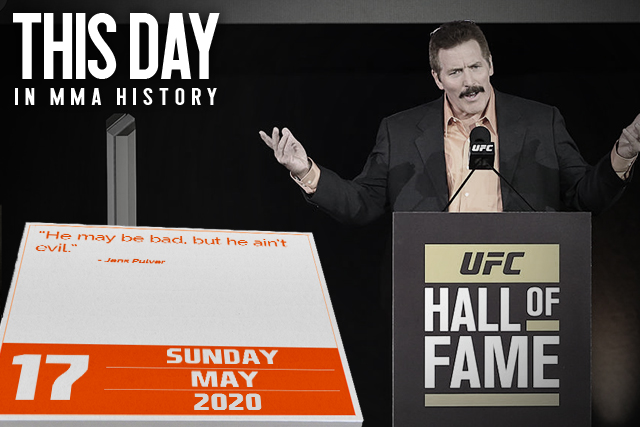
Held in Detroit on May 17, 1996, UFC 9 was a pivotal moment for the Ultimate Fighting Championship for several reasons. It was the first UFC event not to feature a tournament format, instead employing the card structure we are familiar with today: a series of one-off matchups, usually with the most prestigious or important fights at the end. While other elements of modern MMA, such as weight classes and the prohibition of shoes, were still years away—not to mention the term “mixed martial arts” itself—the adoption of boxing-style card structure was a significant early move.
Most memorably, UFC 9 was the first event to occur after Arizona senator John McCain launched his infamous crusade against no-holds-barred fighting, which gave us the immortal epithet “human cockfighting.” Whether McCain’s moral panic was informed by genuine concern over the safety of the sport, the boxing dollars that filled his campaign coffers, or some combination of the two, the effects were swift and significant. UFC 9 was very nearly not allowed to go on, and in fact was only given final clearance on the day of the event, with additional rules forbidding head butts and closed-fist striking. The first prohibition was followed and would become a part of the rules going forward; the second, not so much.
Ironically, the in-cage product that night seemed to do its best both to contradict Sen. McCain’s accusations and render them unnecessary, as the main-event “superfight” between Ken Shamrock and Dan Severn is one of the most non-violent matches in MMA history. As difficult as it is to picture someone watching two heavyweights circle for 20 minutes without throwing a strike and deciding that the spectacle was just too bloody and barbaric for human consumption, it is equally difficult to picture them ever wanting to shell out money for another UFC pay-per-view. Without hyperbole, it is probably the worst fight ever put on by a major MMA organization.
Whether because of McCain’s efforts or the UFC’s ongoing process of finding its feet from an organizational and entertainment standpoint, UFC 9 marked the beginning of the promotion’s darkest time. McCain’s public pressure never resulted in a nationwide ban, but did succeed in getting the sport dropped from pay-per-view in numerous states, and for nearly four years, from UFC 13 in 1997 to UFC 32 in 2001, events were available only on home video, and only after the fact.
More




 On This Day In MMA History
On This Day In MMA History


